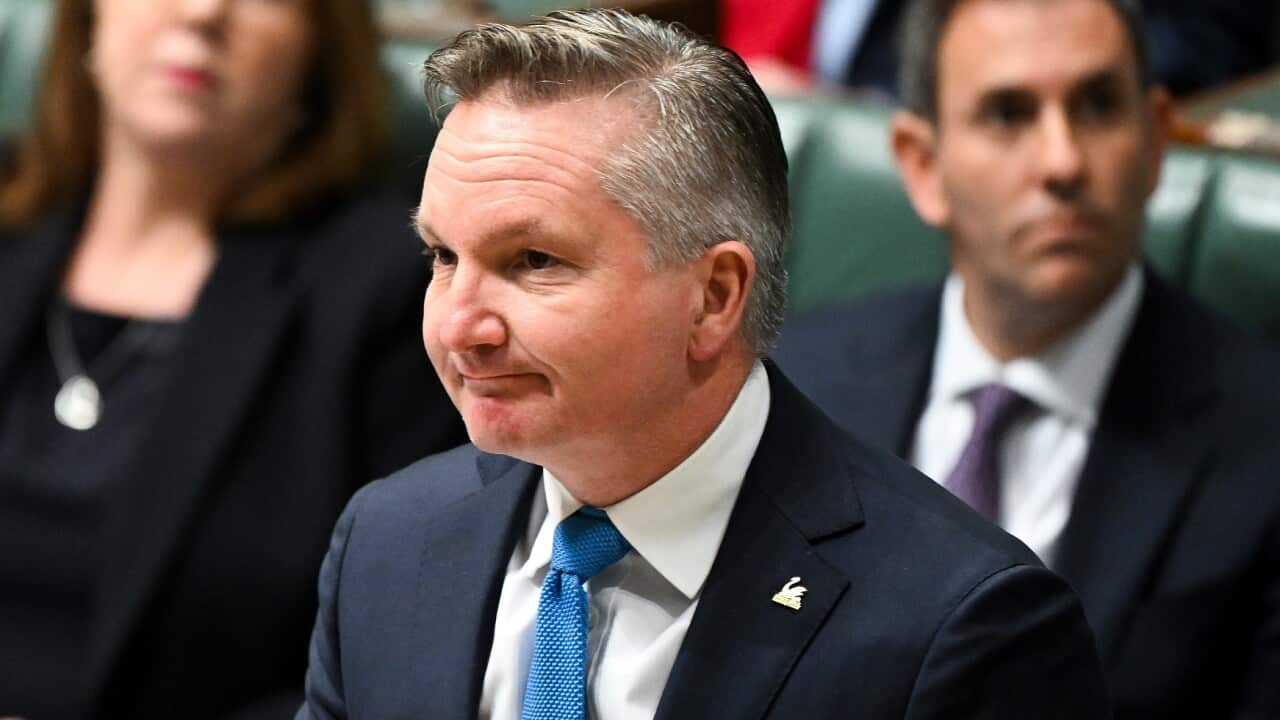Listen to Australian and world news, and follow trending topics with SBS News Podcasts.
"We live in a performance-enhanced society. Men and women get nose jobs. Women get boob jobs and butt jobs."
Victor Conte masterminded some of the biggest doping scandals in athletics, and he says he sees the appeal of Enhanced Games, where athletes use drugs to boost their performance.
The American was involved in setting up the Bay Area Laboratory Co-operative, and spent time in prison for illegally distributing anabolic steroids.
He argues using drugs to enhance athletic performance simply reflects the realities of modern life.
"Men take Prozac to enhance their productivity at work. Men take Viagra to enhance their performance and turn themselves from a dud into a stud under the sheets. So I get it. These athletes are wanting to enhance their performance, but people in everyday life are routinely enhancing their performance."
The Enhanced Games are set to launch in Las Vegas next May with their inaugural competition.
Sportspeople using substances banned in official competitions will compete in swimming, athletics and weightlifting.
The founder of the games, Dr Aron D'Souza, believes they can transform sports science.
“I think for a few years, there will be a world of natural sport run by the Olympics and a world of enhanced sport run by us. But ultimately, world records matter. As human beings, we're only interested in seeing the fastest humans. We want to see the very best of our species. And we're not interested in the best amateur, right, or the best pro. We're actually just interested in the best.”
Prize money is also a factor.
Participants could earn up to $500,000 per event plus bonuses for surpassing a world record mark.
Enhanced Games competitor Kristian Gkolomeev competed in four Olympics but never made the podium.
According to D'Zouza, the Greek-Bulgarian swimmer has since surpassed one of his sport's greatest achievements.
“Kristian Gkolomeev is now the fastest swimmer in human history. And he did so at 31 years old, five to 10 years later than is generally regarded as peak swimming career. So he's like, should be retired, but in fact, he's swimming faster than any human being has ever done so. Why? Because he used technology and science to enhance his performance. Once the world realises that, I think everyone is going to want it.”
D'Souza argues that doping in professional and amateur sport is rampant despite efforts to eliminate the use of banned substances, leading to secretive and unsafe drug use.
Gkolomeev swam two hundredths of a second faster than the 50m freestyle official world record that has stood for more than 15 years.
He says the Enhanced Games are about creating a level playing field where all athletes are open about what they are doing to enhance their performance.
“I mean I know that you know probably in my career there are some athletes that they were not playing by the rules, you know? But you know I can't prove and never got caught, but as athletes sometimes we understand what's catchy, what's not. But yeah, there's definitely frustration, and that was a big reason that I chose to go to the Enhanced Games, is the level playing field.”
For swimming, the 50m freestyle,100m freestyle, 50m butterfly and 100m butterfly are on the agenda.
Athletics has the 100m sprint along with the 100m and 110m hurdles, while weightlifting will feature the snatch, and clean and jerk.
Retired Australian world champion swimmer James Magnussen has signed up to take banned performance-enhancing drugs in an attempt to surpass Cesar Cielo's 50m freestyle record.
Magnussen makes no apologies about participating in the Enhanced Games training program.
"Forget about the protocols, forget about the world record, all of that stuff. As a mature-age now athlete again, I was just so happy to be back to be training, to be working with world-class professionals and to have a chance to compete again.”
The World Anti-Doping Agency staunchly opposes the project, warning athletes that they risk bans and their health.
WADA Science Director Olivier Rabin says long-term health risks can be hard to assess with on-the-spot checks.
"We think this is dangerous and an irresponsible concept by all means. I mean, again, health is at the very heart of what we are doing at WADA and also in the fight against doping in sport. This is very much embedded into the code, into the way we work to establish prohibited substances and methods, and having a free pass to use whatever substance or whatever method to enhance performance without consideration for health for us is absolutely nonsensical."
Mr Rabin also says it would be complicated for athletes to compete in clean sport again after participating in the Enhanced Games.
"They would probably risk committing an anti-doping rule violation. Because, as you know, we can prosecute an anti-doping rule violation for a period of 10 years based on sample analysis or testimonies. So it's not just testing; it's also the fact that you benefited at some point from a performance-enhancing substance. And we know today that there are, for some of them, long-term beneficial effects, in particular on the muscle, of using performance-enhancing substances."
Sports Integrity Australia issued a statement warning athletes of risks to their health, and slamming the games as dangerous, unethical and damaging to sport.
The group's Athlete Advisory Group says normalising performance-enhancing drugs promotes doping as entertainment.
Mr Rabin agrees.
"It's like the Roman circus, you know, you sacrifice the lives of people purely for entertainment. What's the value of this? I don't think any responsible society should move in that direction."













